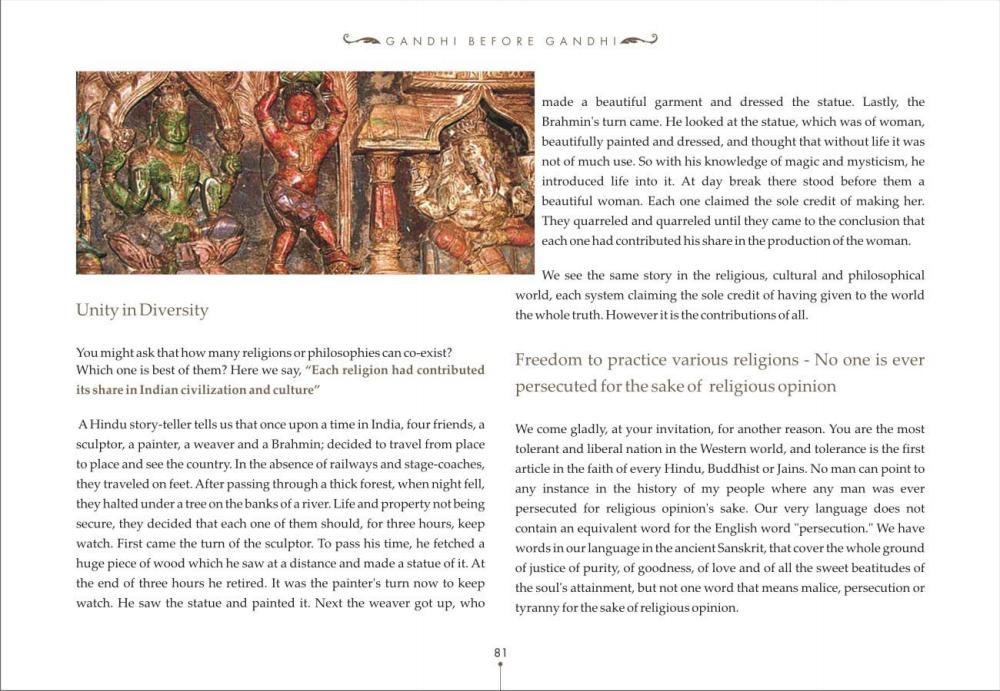________________
GANDHI BEFORE GANDHI
Unity in Diversity
You might ask that how many religions or philosophies can co-exist? Which one is best of them? Here we say, "Each religion had contributed its share in Indian civilization and culture"
A Hindu story-teller tells us that once upon a time in India, four friends, a sculptor, a painter, a weaver and a Brahmin; decided to travel from place to place and see the country. In the absence of railways and stage-coaches, they traveled on feet. After passing through a thick forest, when night fell, they halted under a tree on the banks of a river. Life and property not being secure, they decided that each one of them should, for three hours, keep watch. First came the turn of the sculptor. To pass his time, he fetched a huge piece of wood which he saw at a distance and made a statue of it. At the end of three hours he retired. It was the painter's turn now to keep watch. He saw the statue and painted it. Next the weaver got up, who
81
made a beautiful garment and dressed the statue. Lastly, the Brahmin's turn came. He looked at the statue, which was of woman, beautifully painted and dressed, and thought that without life it was not of much use. So with his knowledge of magic and mysticism, he introduced life into it. At day break there stood before them a beautiful woman. Each one claimed the sole credit of making her. They quarreled and quarreled until they came to the conclusion that each one had contributed his share in the production of the woman.
We see the same story in the religious, cultural and philosophical world, each system claiming the sole credit of having given to the world the whole truth. However it is the contributions of all.
Freedom to practice various religions - No one is ever persecuted for the sake of religious opinion
We come gladly, at your invitation, for another reason. You are the most tolerant and liberal nation in the Western world, and tolerance is the first article in the faith of every Hindu, Buddhist or Jains. No man can point to any instance in the history of my people where any man was ever persecuted for religious opinion's sake. Our very language does not contain an equivalent word for the English word "persecution." We have words in our language in the ancient Sanskrit, that cover the whole ground of justice of purity, of goodness, of love and of all the sweet beatitudes of the soul's attainment, but not one word that means malice, persecution or tyranny for the sake of religious opinion.




